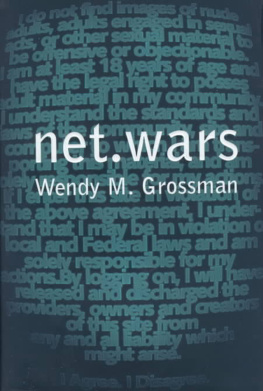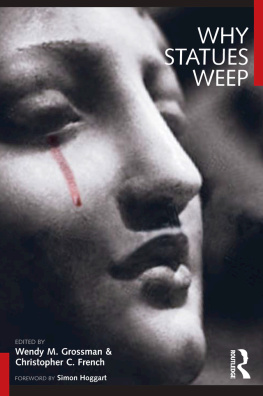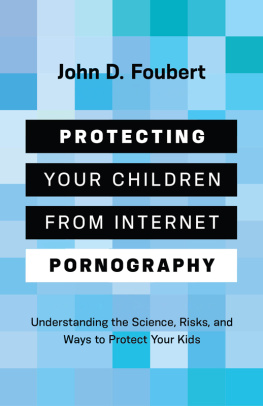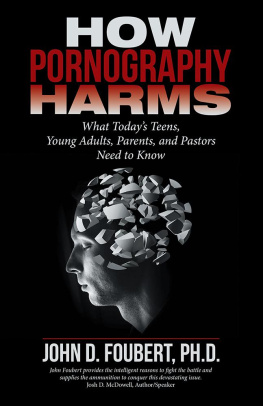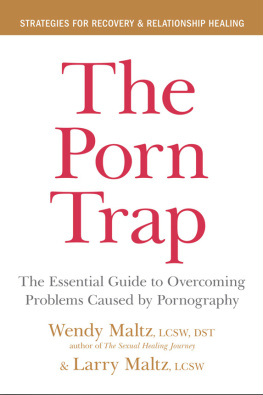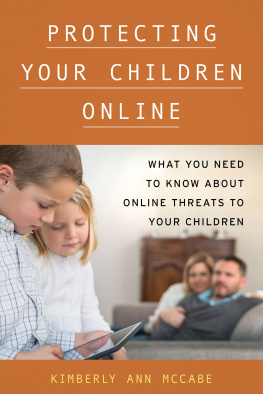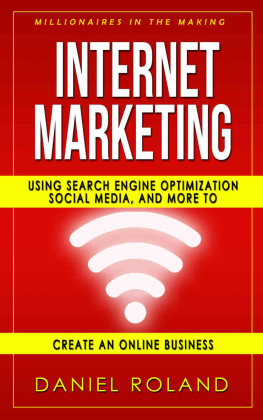
net.wars
net.wars
Wendy M. Grossman
NEW YORK UNIVERSITY PRESS
New York and London
NEW YORK UNIVERSITY PRESS
New York and London
1997 by Wendy M. Grossman
All rights reserved
Library of Congress Cataloging-in-Publication Data
Grossman, Wendy, 1954
Net.wars / Wendy M. Grossman.
p. cm.
Includes bibliographical references and index.
ISBN 0-8147-3103-1 (cloth : acid-free paper)
1. Internet (Computer network)Social aspects. 2. Electronic discussion groupsSocial aspects. I. Title. II. Title: Netwars. III. Title: Net wars.
ZA4201.G74 1997
303.48'33dc21 | 97-21214
CIP |
New York University Press books are printed on acid-free paper, and their binding materials are chosen for strength and durability.
Manufactured in the United States of America
10 9 8 7 6 5 4 3 2 1
Contents
Acknowledgments
I hate being edited, so Im not going to suggest that Tim Bartlett in any way improved the quality of this book with his care, attention, and comments, even though he did risk near-certain death to do it (edit this!). I would like to thank, though, the many editors at the Guardian, PC Answers, Internet Today, and Personal Computer World, who commissioned much of the work on which this book is based: Jack Schofied, Bill ONeill, Azeem Azhar, Tom Standage, Ben Rooney, Steve Patience, Richard Baguley, and Ben Tisdall, who also began the whole business by loaning me a modem and some communications software to write a beginners piece about BBSs. Dan (hacks the media) OBrien at the now defunct Wired UK was the person who first spotted that the debates we were watching on alt.religion.scientology were heating up into a story of some significance, and he saw the first version of that story through most of the editing process; more help came from John Browning, who edited the piece for Wired UK, and Martha Baer, who edited the second version for Wired.
The Net is a collaborative medium, and ideas flow so freely that after a while you cant always be sure whose they were; thanks, therefore, for many inspirations to all my unwitting collaborators, as well as the hard core who show up at the annual Computers, Freedom, and Privacy Conference. Thanks also go to Demon Internet and the WELL for facilitating my online presence, and especially to CIX, which bears the brunt of my weird online habits, as well as to the many people, such as Mike Rogers, Ron Newman, Rupert Goodwins, and David Morton, who have taken the time to explain technical details for me. Lucy Kewney deserves to be appreciated for checking URLs and sorting papers.
Thanks also go to my agent, Diana Finch, who seems to like grinding contracts into dust; to Bill Steele and Carol Hemsley for picking out what would have been embarrassing errors; and to my friends Barbara, David, Alison, and Owen Long, who spent their Christmas vacation watching me work and trying to get on their own computer and phone line; and to the byline conference on the WELL for all the help and advice, and for providing the closest thing there is to a productive displacement activity.
Introduction
The idea for net.wars came from three things. The first was repeated exposure to theories that the Net would wipe away the world as we know it (with the corollary that this would be a Good Thing). I think this is far from certain, if only because I learned about inertia in high school. The second was John Perry Barlows declaration that cyberspace should be its own sovereign state. It seems unlikely this will be allowed to happen, but its an interesting idea. The third was watching the Nets convulsions over the years 1993 to 1996 as it tried to assimilate huge numbers of new users who didnt share the culture that had been developing over the previous decade. Around the time that I finished writing up a years worth of observing folks duke it out on alt.religion.scientology for Wired, I decided there was a book in the wars along the border between cyberspace and real life, a metaphor that was inspired by discovering that a few years after Ireland was partitioned in the early 1920s there were riots along the border when an outfit called the Boundary Commission proposed to change it slightly to bring more Protestants into the North and more Catholics into the South.
Around the time the book was commissioned, in June 1996, I went to Cornell University for a science workshop and found myself staying in roughly the same area of North Campus I had lived in my first summer there in 1970. Walking down the path through the empty landscape around Clara Dickson Hall and its courtyard, I finally understood the meaning of the word timeless: shorn of students and their changing fashions it looked the same when I was forty-two as it had when I was sixteen. Doubtless it looked the same before I was born, and its easy to imagine that generations of alumni will help ensure that it will look the same a century hence.
The Net is not like this. The oldest area I visit regularly didnt exist before 1985, and while it will probably exist ten years from now, I have no idea whether it will look or behave the same. For a hundred years from now all bets are off, although its nice to think that future generations might not only tread in my path but relive my interactions in cyberspace. Reading what new friends said in old, stored topics and conferences is the nearest we come to time travel and the ability to see our friends and lovers as they were before we knew them and altered them subtly, as knowing people does.
I used to say that a key crossroads in an expatriates life comes at five years after emigrating. Before then, going back is still easy: your friends kids remember you, your career is retrievable, your life is still there. After five years, it gets hard: your friends move, your work contacts change jobs or even professions, and you lose touch with the common culture. I mean, you dont get the jokes. (After ten years, there is no longer any such thing as going back. There is only starting over in a new place thats partly familiar.)
Having now been online for more than five years, I note a similar watershed. It became clear to me around the same time as that Cornell trip, when I suddenly found it difficult to feel a sense of shared community with a large group of people, many of whom I knew, who shared some of my long-term interests. They were not on the Net, you see. These are people who make their lives with ideas, and yet their primary perception of the Net was negative: they didnt see it as a tool they could use to spread information or counter misinformation, or interact with like-minded others. Instead, they saw it as a new danger. And I reacted as any typical Nethead mightprotective instincts to the fore, along with a sort of exasperated alienation: they didnt get the jokes.
This all leads up to saying that Im not sure how objective any journalist is about the Net. Journalists who dont use the Net themselves routinely make such egregious technological and cultural errors that you can only compare the results to what would happen if they were assigned to write about the interstate highway system based on their experiences at sea. With that lack of context, if the police told you that prostitutes routinely and openly solicited truckers and other visitors to roadside rest areas and that therefore they were risky places for families to visit, you would probably believe them and write the story.
At the same time, after a while its easy to lose perspective and forget that behavior which is common and tolerated on the Net seems shocking to newcomers. If you hang out, for example, in the newsgroup
Next page
